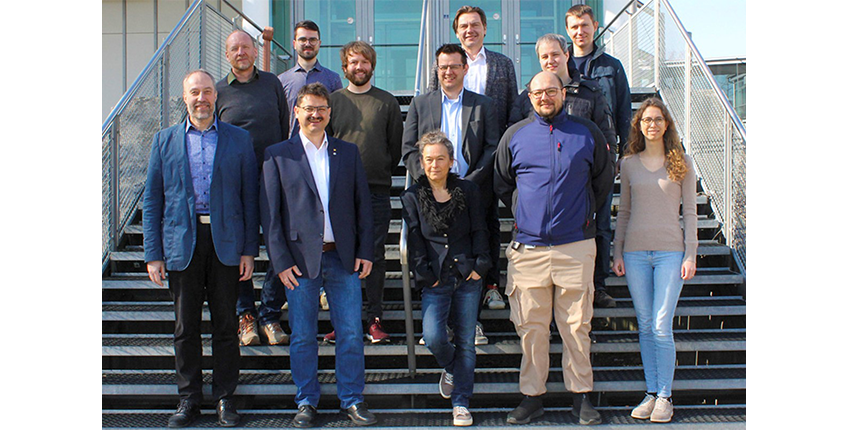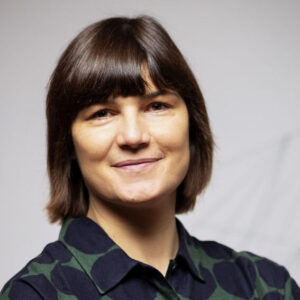The spread of electric mobility poses new challenges for infrastructure: stations for recharging vehicle batteries must be optimally integrated into the existing local stationary energy grid. An overarching charging concept is needed for different types of vehicles.
In the joint project eMobiGrid, three medium-sized companies, the University of Bayreuth and Fraunhofer IISB are developing practical solutions together to accelerate the transport transition. eMobiGrid is funded by the Federal Ministry for Digital and Transport (BMDV) under its electric mobility funding guideline in the amount of around three million euros. The funding guideline is coordinated by NOW GmbH and implemented by Project Management Jülich (PtJ).
Together, the eMobiGrid project partners are working on increasing the degree of utilization of renewable energies for the mobility sector. Because renewable energy sources are normally added as direct current (DC) sources, their integration into the public alternating current (AC) grid requires a lot of steps in the conversion process. This results in unnecessary losses and in addition, the grid becomes prone to failures. That is why the eMobiGrid partners are relying on local DC grids. These enable low-loss coupling of battery storage systems, photovoltaic systems, wind turbines and hydrogen technologies and relieve the electrical burden on grids that are only weakly developed. The local DC electric grids will be coupled with the superordinate AC mains grid. This generates a comprehensive energy infrastructure that supports the efficient integration of sustainable energy sources and at the same time, makes the development of electric mobility easier.
Such a local direct current grid is already part of the energy management at Fraunhofer IISB. It comprises various modern energy sources and storage concepts, including a photovoltaic facility, heat and cold storage, battery storage and a combined heat and power plant. The key components within the DC grid are efficient, reliable and secure DC converters. In the eMobiGrid project, the DC grids group at IISB, under the leadership of Bernd Wunder, is now developing a particularly flexible, insulating DC/DC converter. This converter is specially optimised for bidirectional direct current charging: “The new DC/DC converter stands out through its enormously wide voltage range,” explains Bernd Wunder. “In addition to passenger vehicles, commercial vehicles – from forklifts to trucks – can be charged and discharged.” Only bidirectional charging enables batteries from electric vehicles to be used as interim storage mechanisms in the electric grid. This way they buffer overproduction of renewable energies. The bidirectional charging technology is therefore particularly essential for grid stability at times when energy supply fluctuates.
Project partners
The company Richter R&W Steuerungstechnik in Ahorntal / Oberfranken leads the consortium for the eMobiGrid project. Together with the eCharge Hardy Barth company in Birgland-Schwend / Oberpfalz , it will work through the systematic tasks that arise in designing a new grid interconnection facility. This facility will enable batteries from a wide variety of vehicles to access the same stationary direct current grid. The Fraunhofer Institute for Integrated Systems and Device Technology IISB in Erlangen is primarily focused on the power electronics required and battery technology. The Chair for Measurement and Control Technology (MRT), a member in the Centre for Energy Technology (ZET) at the University of Bayreuth, is taking on the research and development work in the field of intelligent measurement and automation technology together with the company EnQS in Karlsruhe.
Funding
eMobiGrid is one of six new joint projects funded by the Federal Ministry for Digital and Transport (BMDV) for developing electric mobility. These projects will be funded with a total of around ten million euros, of which the eMobiGrid is allocated approx. three million euros. Financing comes from the BMDV’s electric mobility funding guideline , coordinated by the National Organisation Hydrogen and Fuel Cell Technology (NOW GmbH) located in Berlin and implemented by Project Management Jülich (PTJ).
Image: The eMobiGrid project consortium during the kick-off meeting on 3 March 2023 at the University of Bayreuth.
Image source: © University of Bayreuth
Source: www.iisb.fraunhofer.de


